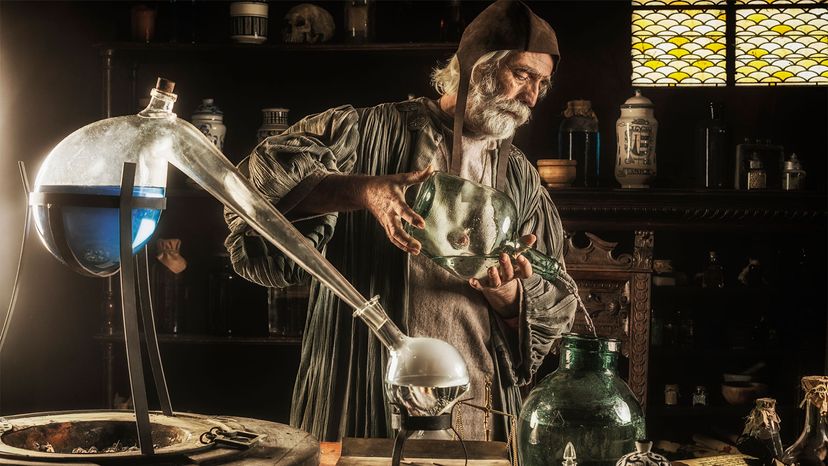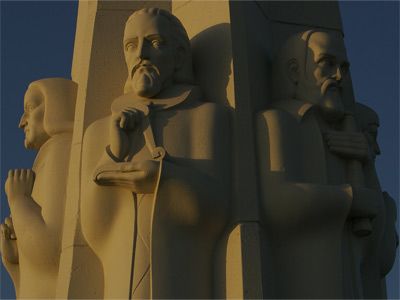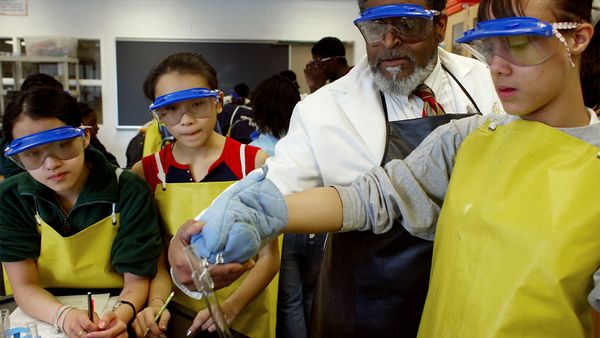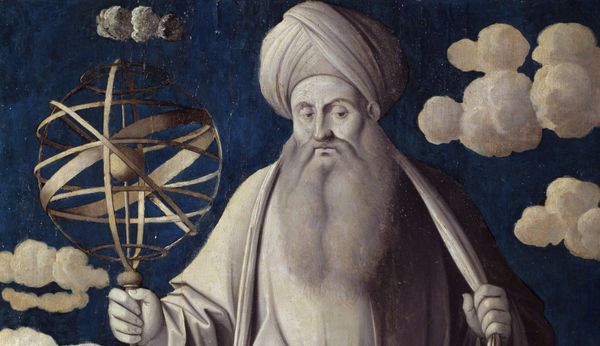People who practiced alchemy were searching for ways to (a) produce elixirs which would hopefully cure all kinds of diseases, and (b) turn base metals (like lead) into precious ones (like gold) via a yet-to-be-found substance called the philosopher's stone. "The Chinese were particularly interested in the first [search], the western Europeans in the second," emails Peter Maxwell-Stuart, who teaches history at the University of St. Andrews in Scotland.
From the first centuries C.E., China and India were practicing a form of alchemy, Maxwell-Stuart says. Europeans widely practiced alchemy during the Middle Ages (roughly 1000 C.E. until 1500) and even into the 18th century. "Its popularity waned during the 19th [century], but it survived even then and was still being practiced in the 20th century, too," he adds.
Thanks in part to beliefs that ultimately went back to Aristotle and the Greek philosophers, alchemists thought that nature was always striving to perfect itself. And since gold was the "perfect metal," in part because it doesn't rust or tarnish, it was regarded as the end-all, be-all of metals. The thinking was that "all other metals would eventually turn into gold by natural processes over a very long period of time," says Maxwell-Stuart.
So, the alchemist was seeking to speed up this natural process in the laboratory. "Given the basic assumptions of their belief systems, the alchemist's endeavors were entirely rational," he says. "Theoretically, too, alchemical experimentation might give an insight into God's intentions in creating the universe the way he did."
With their boiling cauldrons and intricate crucibles, alchemists (who were predominately but not exclusively men) exhibited a willingness to experiment, a trial-and-error mentality that explored multiple disciplines in hopes of illuminating nature's intricacies through honest scholarship and research. Alchemists tinkered with chemical process, like dyes and perfumes, and of course, also found ways to change the properties of various alloys.
One didn't attend "Alchemy University" to learn these skills. Instead, the knowledge of master alchemists was transferred to apprentices under a shroud of secrecy; because that knowledge was so powerful, alchemists wrote in obscure symbols, codes and metaphors to protect their ideas and insights.
Despite all the mystery, not all the experiments were bogus. Lawrence Principe, a chemist and science historian at Johns Hopkins University, decided to recreate a medieval alchemy experiment, one that he hoped would conjure a "philosopher's tree" made from a tiny bit of gold. (The philosopher's tree was a precursor to the philospher's stone.) He blended gold and mercury into a flask, which he then placed under warm sand in his lab. Days later, he was astonished to see that the recipe had in fact worked, generating a golden tree-like structure that would've undoubtedly drawn even more awe centuries ago.
These kinds of wonders may not have been possible if not for the work of countless alchemists of yore, who often used techniques like sublimation and distillation that would be familiar to any modern chemist.



